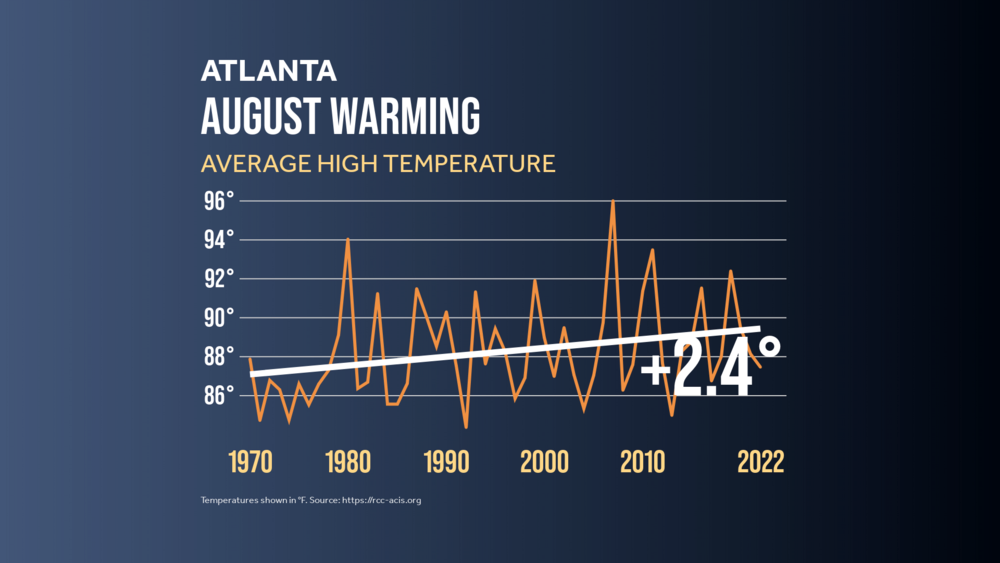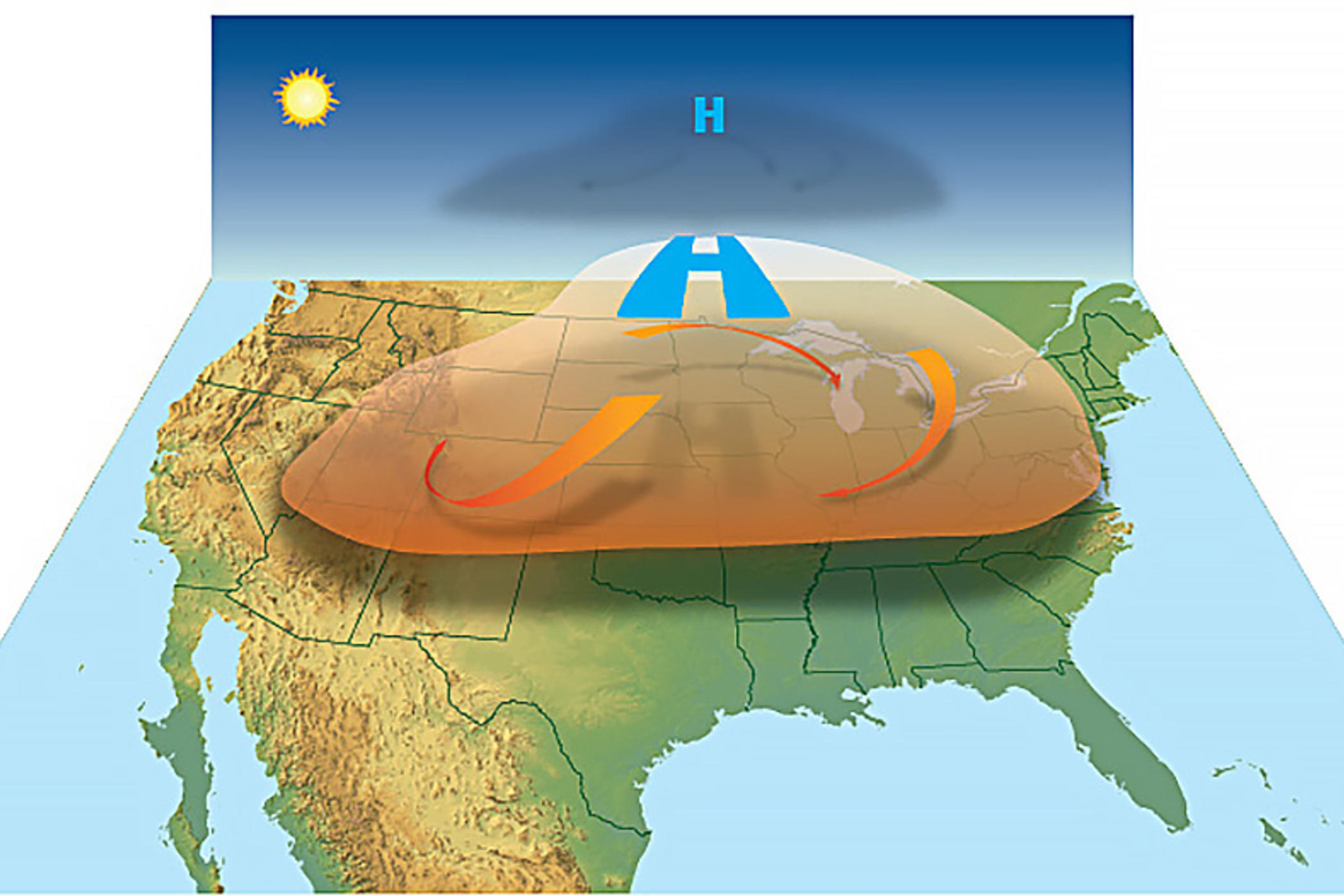
Section Branding
Header Content
Georgia will experience a heat dome this week. Here's what that means and how you can prepare
Primary Content
Temperatures near or above 100 degrees with a dangerous heat index are expected across the state of Georgia through Saturday.
Yes, it's hot.
Not just regular summer hot, but an increasingly persistent type of excessive heat caused by a combination of climate change and specific weather conditions.
In addition to the dangerous heat indexes experienced across the country this summer, this week's triple-digit threat brings an extra element of dread and peril: a heat dome.
The National Oceanic and Atmospheric Administration investigated what triggers heat domes and found the main cause was a strong change (or gradient) in Pacific Ocean temperatures.
But you don't have to leave near a California beach to feel its effects. It can affect several continents.
Here's the way NOAA describes the phenomenon:
"Imagine a swimming pool when the heater is turned on — temperatures rise quickly in the areas surrounding the heater jets, while the rest of the pool takes longer to warm up. If one thinks of the Pacific as a very large pool, the western Pacific’s temperatures have risen over the past few decades as compared to the eastern Pacific, creating a strong temperature gradient, or pressure differences that drive wind, across the entire ocean in winter. In a process known as convection, the gradient causes more warm air, heated by the ocean surface, to rise over the western Pacific, and decreases convection over the central and eastern Pacific. As prevailing winds move the hot air east, the northern shifts of the jet stream trap the air and move it toward land, where it sinks, resulting in heat waves."
These heat waves trap warm air and humidity inside a dome-like bubble, driving temperatures on the ground sky-high.
The dome starting Tuesday and running through Saturday will affect most of Georgia. Heat advisories and excessive heat warnings will be in effect.
Check your local forecast by county here.

Why are we getting so many heat warnings this summer?
According to Climate Central's Climate Shift Index, climate change will make extreme heat conditions in Georgia this week at least four times more common than without climate change. The index or CSI is a categorical scale defined by the ratio of how common (or likely) a temperature is in today's altered climate vs. how common it would be in a climate without human-caused climate change.
What you can do to stay safe
- Drink plenty of fluids.
- Stay in an air-conditioned room.
- Stay out of the sun, and check up on relatives and neighbors.
- Young children and pets should never be left unattended in vehicles under any circumstances.
- Take extra precautions if you work or spend time outside.
- When possible reschedule strenuous activities to early morning or evening.
- Know the signs and symptoms of heat exhaustion and heatstroke.
- Wear lightweight and loose-fitting clothing when possible.
- To reduce risk during outdoor work, the Occupational Safety and Health Administration recommends scheduling frequent rest breaks in shaded or air conditioned environments.
Watch for the first signs of mild heat exhaustion:
- headaches
- dizziness
- lethargy
- feeling unwell in general
Anyone overcome by heat should be moved to a cool and shaded location, especially before heatstroke occurs.
Symptoms of heatstroke include:
- Confusion, altered mental status, slurred speech
- Loss of consciousness (coma)
- Hot, dry skin or profuse sweating
- Seizures
- Very high body temperature
Heatstroke is a life-threatening emergency. Call 911.


